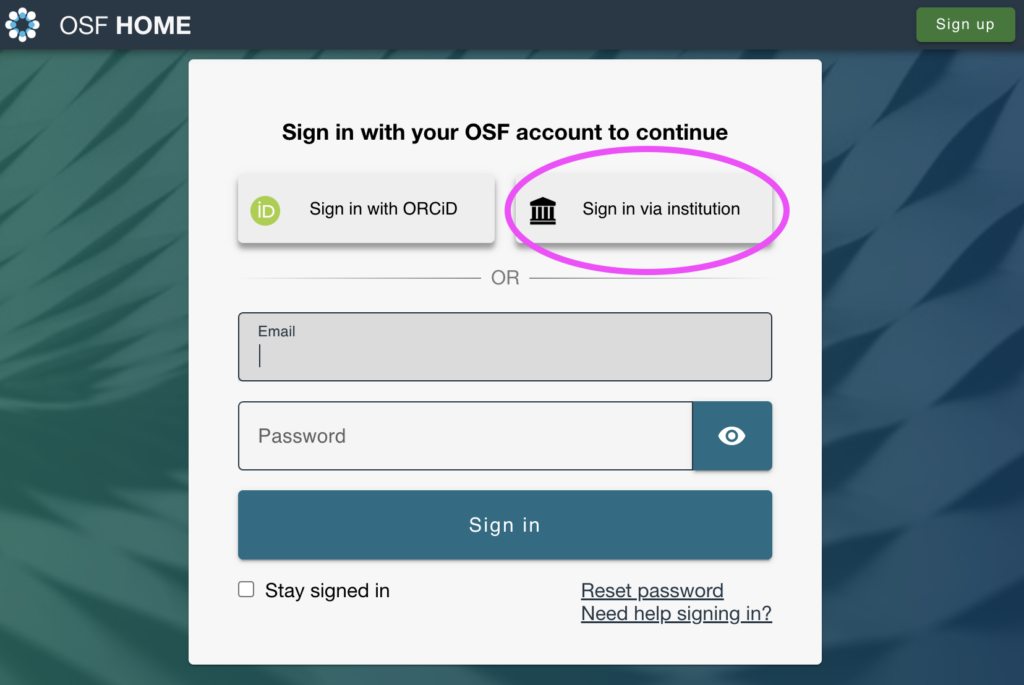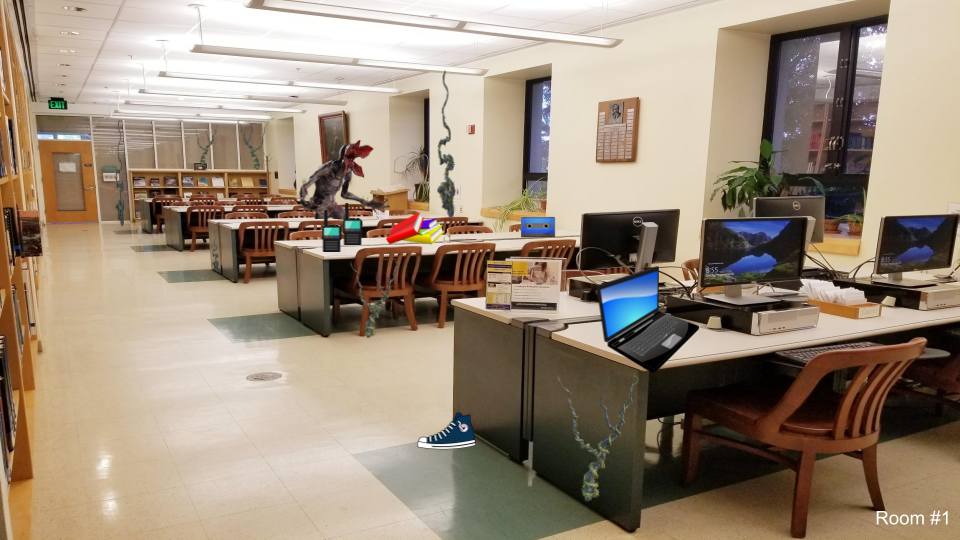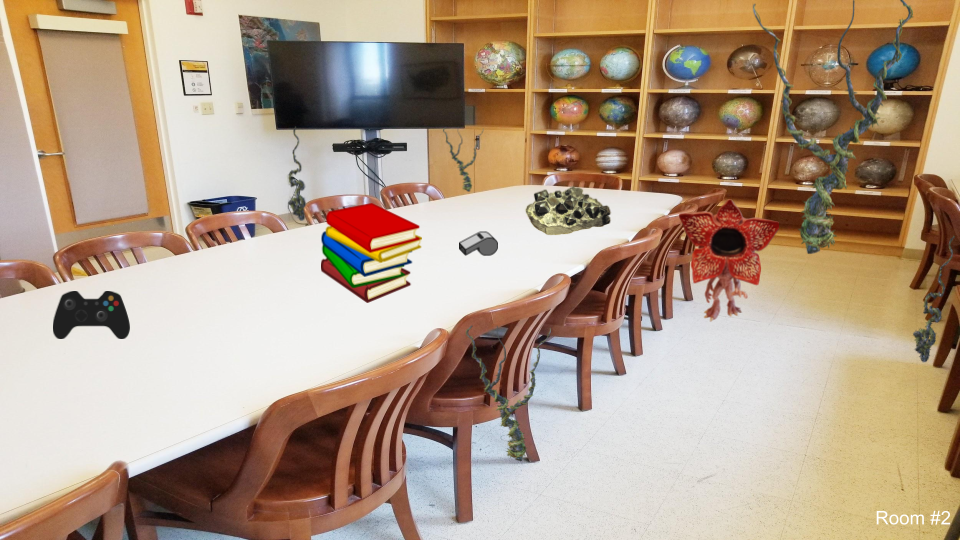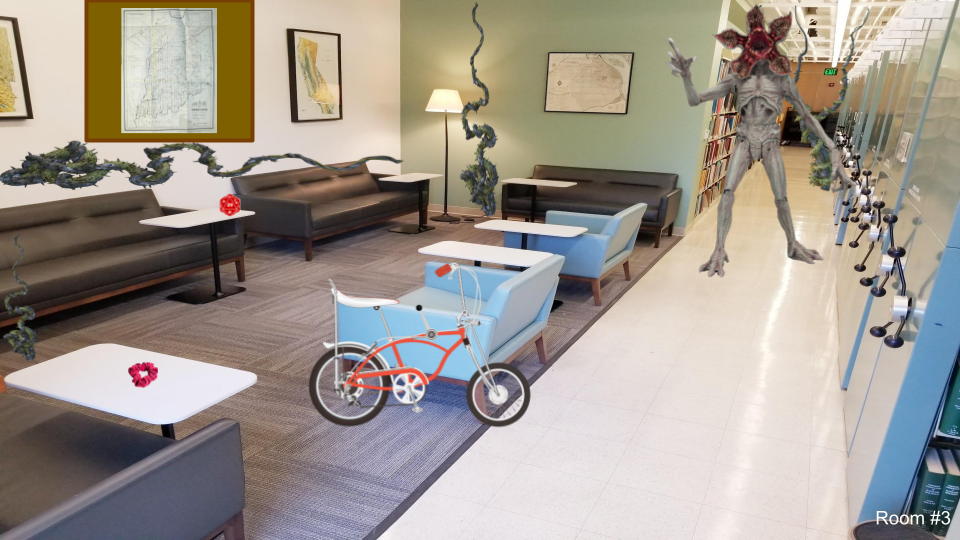The Open Science Framework (OSF) supports and enables reproducible open science, allowing researchers to manage the full lifecycle of their research projects in one place. OSF provides a platform for open research outputs including preprints through MetaArXiv, registrations and preregistrations; and project sites to host plans, results and related files.
With UC Berkeley’s new OSF membership, you can now log in to OSF with your UC Berkeley CalNet login and password.
Connect your research
To affiliate your research, first visit osf.io and choose “sign in with my institution.”

Then select University of California, Berkeley from the drop-down on the next screen. You will be directed to login with your UC Berkeley CalNet login and password. Once you connect the first time, you can either login with your existing OSF username and password or with your CalNet.
Open your research
Conducting your research through the UC Berkeley OSFI platform is a strategic way to enhance transparency, foster collaboration, and increase the visibility of your research. It allows you to affiliate your public research with UC Berkeley on OSF and discover other affiliated research. If your research is not yet public, now might be a good time to consider sharing your existing or future work!
For more information, you can view help guides on signing in with your institution and affiliating your projects. You can also view the UC Berkeley affiliated research through our new landing page.
Learn more
If you’d like to learn more about OSF, join us for an upcoming event:
Topics to be covered:
- logging in with your CalNet ID and setting up your UC Berkeley affiliation
- working with collaborators at Berkeley and beyond
- public and private features and storage limits
- preprint (MetaArXiv) and registration sites
- integrations with other tools
If you have further questions, please contact the science libraries team at epslibs@berkeley.edu.



